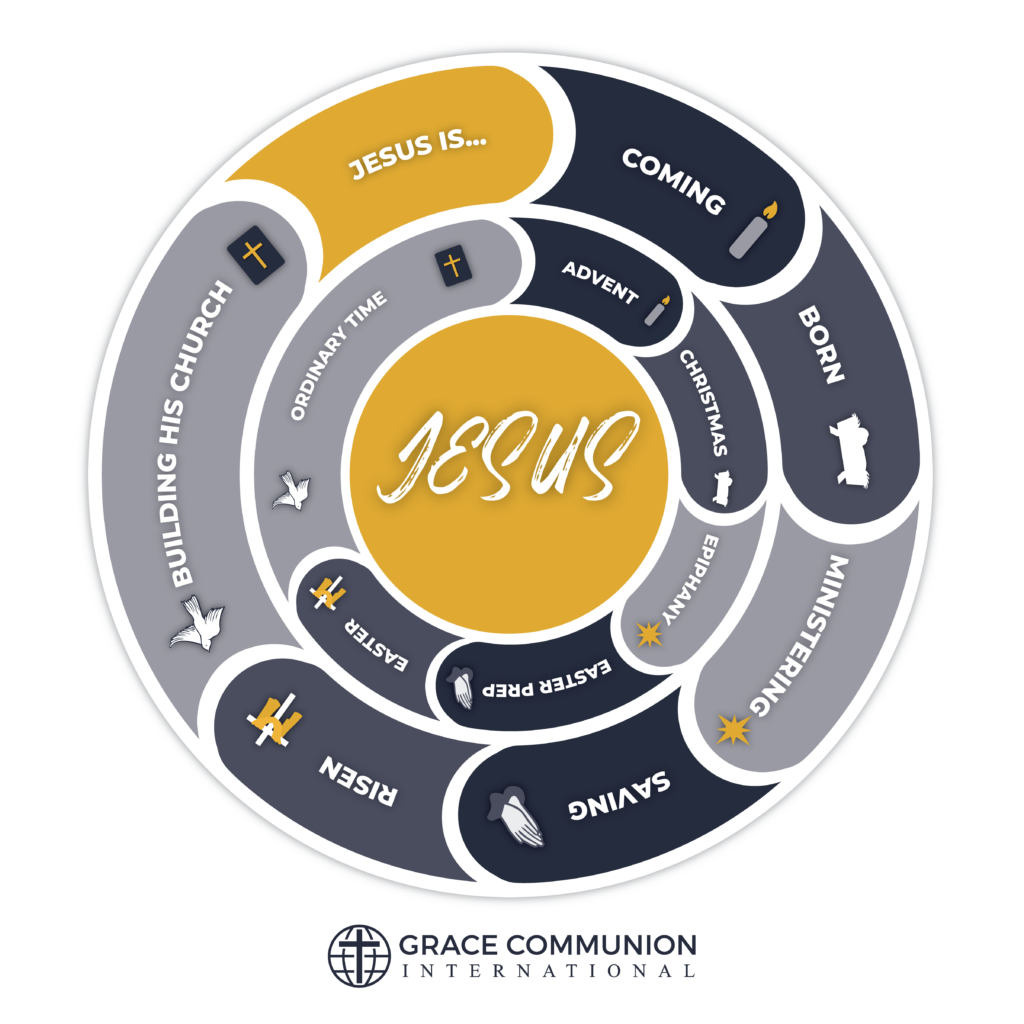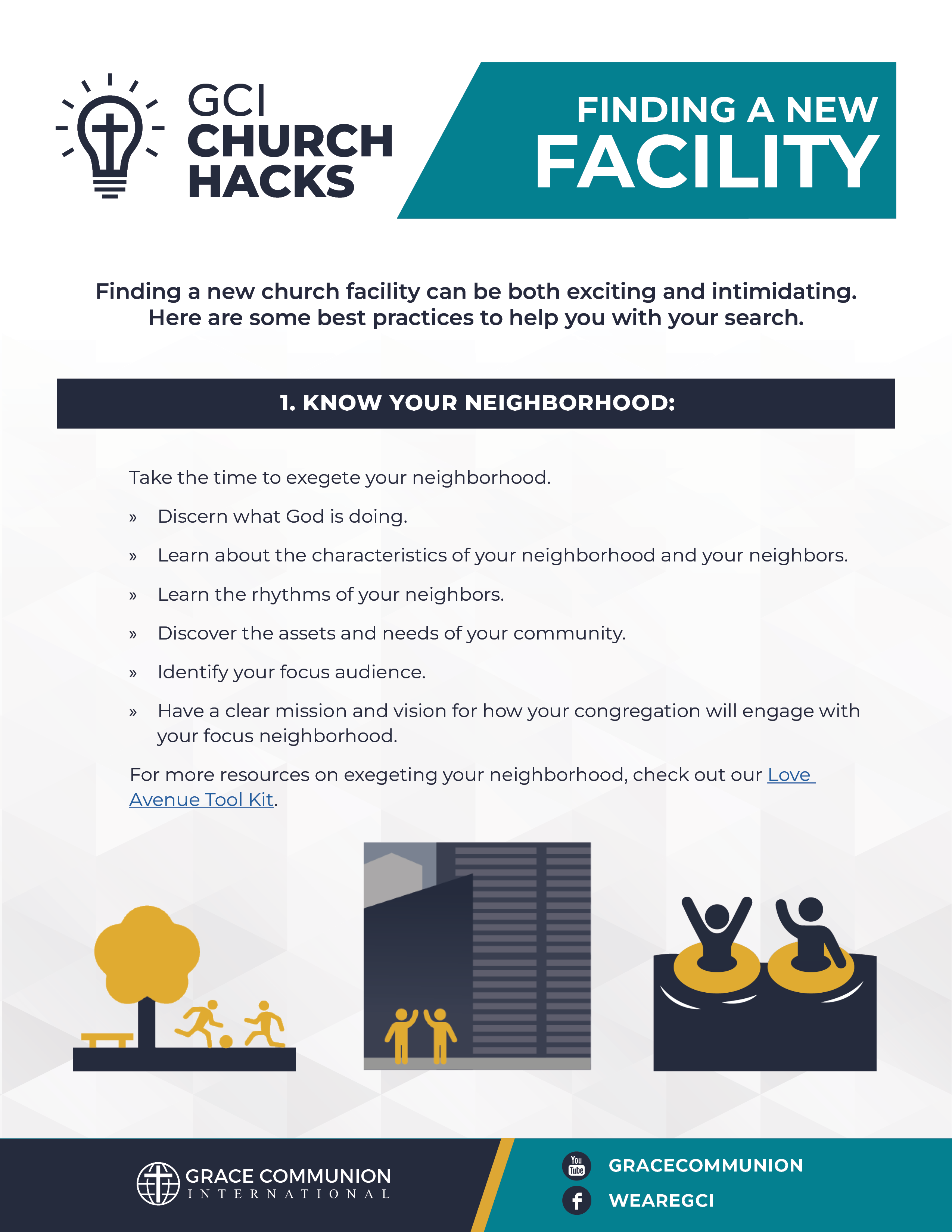His Mercy is More w/ Jeremy Begbie
Welcome to the Gospel Reverb podcast. Gospel Reverb is an audio gathering for preachers, teachers, and Bible thrill seekers. Each month, our host, Anthony Mullins, will interview a new guest to gain insights and preaching nuggets mined from select passages of scripture, and that month’s Revised Common Lectionary.
The podcast’s passion is to proclaim and boast in Jesus Christ, the one who reveals the heart of God, Father, Son, and Holy Spirit. And now onto the episode.
Anthony: Hello friends, and welcome to the latest episode of Gospel Reverb. Gospel Reverb is a podcast devoted to bringing you insights from Scripture found in the Revised Common Lectionary and sharing commentary from a Christ-centered and trinitarian view.
I’m your host Anthony Mullins, and it’s my delight to welcome our guest, Dr. Jeremy Begbie. Jeremy is the Thomas A. Langford Distinguished Research Professor of Theology at Duke Divinity School in Durham, North Carolina. He is also the McDonald Agape Director in Duke Initiatives of Theology and the Arts.
He has authored several books including A Peculiar Orthodoxy: Reflections on Theology and the Arts and Voicing Creation’s Praise: Towards a Theology of the Arts. Jeremy is an ordained priest in the Church of England and earned his PhD from the University of Aberdeen.
Jeremy, thank you for being with us and welcome to the podcast. And since this is your first time joining us, we’d love to know a bit of your story and how you are participating with the Lord these days.
[00:01:38] Jeremy: Thank you so much. Thank you for the invitation. It’s a delight to be here. I came to faith when I was about 19 years old. I was brought up in Edinburgh, Scotland, and was a musician from as long as long as I can remember, far back as I can remember.
And through my early life and through my teens, all I wanted to be was a musician. I wasn’t an atheist, I don’t think. But I was a kind of lazy agnostic. My mother was a Christian, my father [inaudible] was not. And although I went to church every now and then, Christianity was a pretty distant thing.
But I was interested in religion broadly. That was about it. Anyhow, I started on training in music and the beginnings of a career in music. And it’s when I was at Edinburgh University doing that, that an old school friend of mine called Alan Torrance, who’s a violinist, got together with me, and we played a number of concerts together.
We played music. I was a pianist. He was a violinist—still is. And we started talking, of course, about the faith. And he introduced me to the New Testament. He introduced me also to his father, James Torrance, and I had an elective space in one of my courses, and he said, why not go along and hear my father speak? He’s quite a good speaker. Okay, I’ll do a course just for interest in theology, which I could barely spell, which I never, of course, read the New Testament or anything like that.
But anyhow, so I went along and heard this theologian. And I heard him speak on Hebrews, I think it was. I don’t think I understood a word that he said because it was all kind of foreign language. But at a deeper level, I knew he had something that I didn’t have, and I thought, whatever he’s on, I’d like some of that.
He had an intellectual excitement as well as obvious deep love and commitment to what he was doing. And I got to know the family well. I got invited into this wonderfully hospitable home, and I suddenly went, this is God in action. This is what being a Christian looks like and what being a Christian family looks like.
And over the period of about two or three months, I realized I was praying. I was going to church, and I was a Christian. It wasn’t a particular day, but it happened nonetheless fairly quickly. I was grasped by grace and by the extraordinary living presence of this person, Jesus, who spoke vibrantly to me out of the pages of the New Testament.
So that’s how it all started. Since then, I’ve tried to keep, of course, the music going but I felt a strong call to ordination very early on. I went to study theology in Aberdeen under James Torrance. And then ordination training in Cambridge. I was then a parish minister for three years, and that’s all I really wanted to do at that time.
I didn’t expect to be in the academic world at all. I was called back to Cambridge to do some teaching at the seminary where I trained, and then I taught also in the university. And the rest is history, really. I’ve grown, I think, as a Christian theologian, as a Christian thinker. I see myself as fundamentally an evangelist of good news.
And I’m working out my ordination vows as a theologian, but also as a musician. And most of my research work has been in theology and the Arts. I’m now at Duke Divinity School and loving it.
So that’s a very quick history.
[00:05:46] Anthony: You talked about your first love of music, and I came across a quote from an artist, Emmanuel Jal, who said, “Music is the only thing that can enter your system, your mind, and your heart without your permission.”
And on some level, for me, it rings true. And as you’ve already stated, you’ve invested most of your career teaching the harmony of arts and theology, specifically music. And some in our listening audience may think theology and music are strange bedfellows, but you see the symmetry in the symbiotic relationship, which is really unique.
So how does—I know this is a loaded question—but how does music bear witness to the relational dynamics within the Holy Trinity?
[00:06:17] Jeremy: When I started on this road, there was actually very little written on theology of music for a new Christian coming to faith in the 1970s. And I was nonetheless teaching doctrine week by week in Cambridge and in churches and elsewhere, but I was still having to think as a musician and act as a musician because it’s just part of me.
And I soon realized there were extraordinary resources in music to help us understand more deeply and experience more profoundly the good news of the gospel. So, I dived into music, as it were, with theological ears and into theology with musical ears.
And one of the earliest things I’ve found was an extraordinary resonance between what the church has come to call the doctrine of the Trinity and the way in which we hear music. And the way into that is fairly simple.
It’s just that it’s a very simple idea really. And it’s that the way we see the world and the way we hear the world, and these are very different. If I’m a painter and I try to put yellow, say, and red on the same patch on the canvas in exactly the same space, it’s impossible to see them as red and yellow. Either the yellow will hide the red or the red will hide the yellow. Or the paint’s wet, then they become orange.
So, you can’t see two different things in the same space at the same time. That’s just the way our visual perception operates. The things we see occupy bounded spaces with edges to them such that we say things are over here, but those things are not here. This desk is here, but it’s not over there on the other side of the room. It occupies a bounded space. I quickly saw that.
If you start thinking of the Trinity along those lines, which most of us do, you are in a lot of trouble because of course we don’t believe in Tritheism. We don’t believe that there are three distinct gods occupying a bounded space, three circles or zones. But we’re certainly not Unitarian, as we don’t believe that God is an undifferentiated sort of blob or like the white of a whiteboard with no distinctions and no differentiations.
The way we hear the world then opens up a very different way of conceiving. I’m imagining the triunity of God because, of course, if I play a note on a piano, that sound fills the hole of the space that I hear.
It doesn’t occupy bounded zone. We don’t say it’s somewhere, but not somewhere else. What we actually hear in our ears fills the whole of our home space. And if I add another note to that, that second note will also fill the same space. But I hear it as distinct. I add a third note.
Likewise, I’m now looking—rather hear, not looking—I’m now hearing three notes in the same space at the same time. So those classic problems of the Trinity, when we’re trying to over visualize it and try to understand threeness and oneness in the same space, they begin to disappear.
And of course, there’s another thing about a three-note chord. These three notes happen to resonate with each other is that—well, just that, they set each other off, they enhance each other, they free each other to be the notes they were created to be. Or if it’s not piano, they one string and the other two will free each other to be the strings they were created to be.
What this opens up then is a huge imagination of the Trinity that I believe is much more true to Scripture. So, in John’s gospel, for instance, we have the Father in the Son, Son in the Father. What are we going to do with that? In language, it’s very hard to visualize, but it’s extraordinarily easy to hear just by playing two notes on the guitar, on the piano.
And I began to see that there’s so many problems we’ve had with the adoption of the Trinity is because we’ve insisted on over relying on our eyes rather than our ears. And then this beautifully chimed in indeed with James Torrance’s theology. And all the theology that I’d been hearing and that I’d been preaching for so many years, I suddenly realize this actually opens this up.
And I’ve used this model in many situations with atheists, agnostics, schools, churches, and I’ve found so many of the problematic, the difficulties of conceiving the Trinity begin to dissolve away. So that basically was one of the first things I discovered, and it was a kind of eureka moment.
[00:11:31] Anthony: I would encourage our listening audience to look at the archives of Your Included videos on gci.org. Jeremy did such a masterful job of talking about the very thing he just mentioned. And it was helpful for me, Dr. Begbie, because we often look at the Trinity as a mathematical conundrum as opposed to a relationship to be enjoyed and a mystery to consider.
And music—what you just said about the ears versus our sight—I think music gives us the capacity to put on spiritual imagination in a way that those unhelpful analogies we often use in churches could never get at. So, thank you for that.
[00:12:26] Jeremy: That is the trouble of course with Trinity, so many of our Trinity Sunday sermons turn God into a problem to be solved. And we actually reinforce that in our congregations, which is ridiculous.
We still—last point—we still go on and on about the doctrine of the Trinity, as if that’s what we are talking about. We’re not; we’re talking about God. I remember when I first started teaching theology, people used to say to me—as they do to lots of pupils of the Torrance’s—I think that you’ve got a bit of a thing about the Trinity.
My response was I do, yes indeed, because I have a thing about God. Do you not?
[00:13:00] Anthony: Yes. What other thing is there?
[00:13:01] Jeremy: It’s so fascinating, isn’t it? We all think about God, but thinking about the Trinity becomes this kind of optional, exotic, extra that’s really quite difficult for the theologian. But Trinity is a reality to be enjoyed, not a problem to be solved.
[00:13:15] Anthony: Yeah. This conversation reminds me of a quote I saw in Michael Reeve’s book, Delighting in the Trinity. He wrote, “Indeed in the triune God is the love behind all love, the life behind all life, the music behind all music, the beauty behind all beauty, the joy behind all joy
[00:13:36] Jeremy: Hey, I’ve got to get that.
[00:13:39] Anthony: Let’s move on to the lectionary passages. That’s why we’re here today. We’ll be discussing four passages this month.
Romans 9:1-5, “An Apostle’s Anguish”
Romans 10:5-15, “Confession”
Romans 11:1-2a, 29-32, “His Mercy Is More”
Romans 12:1-8, “You Belong”
I’ll be reading our first passage of the month. It’s Romans 9:1-5. I’m reading from the Common English Bible. It is the Revised Common Lectionary passage for Proper 13 and Ordinary Time, which falls on August 6.
I’m speaking the truth in Christ—I’m not lying, as my conscience assures me with the Holy Spirit: 2 I have great sadness and constant pain in my heart. 3 I wish I could be cursed, cut off from Christ if it helped my brothers and sisters, who are my flesh-and-blood relatives. 4 They are Israelites. The adoption as God’s children, the glory, the covenants, the giving of the Law, the worship, and the promises belong to them. 5 The Jewish ancestors are theirs, and the Christ descended from those ancestors. He is the one who rules over all things, who is God, and who is blessed forever. Amen.
Jeremy, why is Paul so anguished about Israel’s condition? And, as an add-on, what ultimately becomes of Israel?
Let’s start off with a bang.
[00:15:17] Jeremy: I love the way you’ve really got it in for me. But Romans 9-11 is really one of the trickiest passages in the New Testament. They’re a wonderful three chapters, but they are highly contested. I think some things are crystal clear, but there’s some things that are not a hundred percent clear.
And so, I kind of preface it by saying, these are tough, and I’m not primarily a New Testament scholar. So, there’s some things that others will listen to and say, I don’t quite go with you all in that detail particularly.
But anyhow, to answer your question, why he’s so anguished? Because the Jews have rejected the Messiah, because Christ came to his own and his own rejected him. And this absolutely stabs him because he wants to believe that Christ stands in the line of Israel, that Jesus is a Jew, and Paul himself is a Jew. And he was coming to his own people, so surely, they would’ve welcomed him.
And that just gets to him at the deepest possible level. So, the whole of Romans 9, 10, 11, which can be seen as a kind of minefield of doctrinal controversy, in fact comes out of a heartfelt anxiety. Now as far as what will ultimately become of Israel, and we might come on to that later.
He doesn’t answer in my own view. I don’t think he’s primarily interested in what will happen to each and every single Jew. I don’t think that’s his major concern. And I hope it’d be fair to say he lives in hope. He wants to hold out hope to the Jews, as well as of course, to the Gentiles. And he believes God has made possible the salvation for them, both for Jew and Gentile.
Just kind of backing off a bit here, it depends how you see Romans as a whole. We’ve tended sometimes in the [inaudible] world to see it as about: how does an individual get right with God? When it’s not that Paul wouldn’t care about that, but I think the main concern here is how can Jews and Gentiles live together?
And how do the Jews carry on believing they really are the Jews—Jewish Christians, that is. How can they really still think of themselves as Jews and how, of course, can the Gentiles get engrafted into the people of God?
So as the future of Israel, he lives in hope. He lives in hope.
[00:18:03] Anthony: I think you’re right on. Romans 9 is so hotly contested in theological circles.
And maybe one of those contests is about what I’m going to ask you. This particular translation states that he, Christ, is the one who rules over all things. He’s sovereign, verse 5.
But in some theological schema programs, that would be interpreted that God is in control of all things, every jot and tittle. Can Jesus Christ theologically be the ruler of all but not in control of everything? And if so, how? Help us understand.
[00:18:40] Jeremy: You really must have it in for me.
[00:18:43] Anthony: You’ll never come back to this podcast, will you?
[00:18:47] Jeremy: First of all, it’s extraordinary that he’s calling Jesus Christ the ruler that. It’s basic to Paul’s theology, but it is an extraordinary thing for a Jew to be saying (a monotheistic Jew) that Jesus is sharing in the full rule of God.
In my colleague and friend Richard Vulcan’s words, Jesus belongs to the identity of God. That’s what Paul is saying, that’s what the New Testament to saying, which means he shares in the full rule of God. And that’s an absolutely extraordinary thing. I was actually with Richard last night; we’re in the same Bible study group. And he reminds me of this regularly. What an extraordinary kind of claim being made here.
But then I think we need to say, what does rule mean? And you’re dead right. There’s a certain view, of course, of God as a kind of puppeteer or what would be called a highly deterministic view of God’s relation to the world, where God is manipulating the movement of every atom at every point and therefore denying, let’s call it, human integrity. The world becomes a kind of machine that’s built by and utterly controlled by God.
And that kind of control language can, of course, be devastating pastorally, after all. I remember sitting through a sermon once with someone whose child they’d lost. And I think it was not quite a [inaudible], but it was three months after birth or something, they had lost their child. And we sat through this sermon about God being in control. It was about 25 minutes, a very fierce sermon about God being Lord and God being in control.
And we were talking to the preacher afterwards. My friend just went for him basically. He said, “Do you realize what you’re saying then? So was God in full control when our daughter died?”
So, you have to be careful. Of course, there’s truth here. You have to be careful how you express it. One way through here is to speak, of course, about rule.
Who defines what rule looks like? And the answer is, Jesus. There is no rule that is not a loving rule that does not care passionately for the beloved. So, this is not a rule that’s dominated by what we would understand as kind of militaristic control. It’s the kind of rule that is dominated by love, the loving rule.
Of course, it’s there in the Old Testament. I think from the start, that’s what part of being in the image of God means, that we’re to have, as they say, dominion over the earth. But that doesn’t mean domination. It means a wise, loving rule. And so that God therefore in ruling the world will do nothing that compromises his love.
Nothing that overrides the good God that he is. So that’s how I would understand rule. And what’s happening in Romans 9, 10, and 11, is that Paul is saying, not as some interpretations of Romans 9 have that God is directly manipulating every last event, but that God is nonetheless working his purpose out in the world, very often against human resistance and against evil forces, but he is working his purposes out.
And those purposes are purposes of love and grace. And that’s how God rules or exercises his rule—Jesus, in other words. We keep coming back to Jesus. Jesus is the model of what rule is actually about.
Think of Jesus healing people, driving out the evil in healing miracles and teaching [inaudible]—that’s, I think, and the best model of rule that we have.
[00:22:41] Anthony: Yeah, I think the Torrances, and Barth as well, have done such a service to the church in helping us understand that God can only act out of his being. He cannot contradict himself. So, as you said, Jesus who is the center of all things, he defines what rulership looks like, what reign looks like, and it looks like love because that’s who he is.
It is such good news, but sometimes we come to scriptures like this, and with our fallen imaginations, imagine something fearful that God is in control. And so, he did this to my child (referencing the example you gave) to teach me something. What kind of God is that? And so, we keep looking to Jesus, don’t we?
[00:23:25] Jeremy: Absolutely. Now, of course, that doesn’t mean there won’t be great mysteries. That doesn’t instantly answer every question. What it gives us is a perspective from which to look at the world. You’re right, of course, this was Barth’s great insight: you see everything through Christ. Barth didn’t think that he was doing anything terribly revolutionary or different there.
He was just trying to unfold the logic of the New Testament, what the gospels and Paul and the rest were actually saying. And on that I think he’s dead right. That was the great breakthrough for me theologically as well.
[00:24:00] Anthony: Yeah, for me it’s realizing that really all theology is Christology. We look to Christ and then we go from there.
Let’s transition to our next pericope. It is Romans 10:5-15. It is a Revised Common Lectionary passage for Proper 14 and Ordinary Time, August 13.
Jeremy, would you read it for us, please?
[00:24:25] Jeremy: Of course.
Moses writes about the righteousness that comes from the Law: The person who does these things will live by them. 6 But the righteousness that comes from faith talks like this: Don’t say in your heart, “Who will go up into heaven?” (that is, to bring Christ down) 7 or “Who will go down into the region below?” (that is, to bring Christ up from the dead). 8 But what does it say? The word is near you, in your mouth and in your heart (that is, the message of faith that we preach). 9 Because if you confess with your mouth “Jesus is Lord” and in your heart you have faith that God raised him from the dead, you will be saved. 10 Trusting with the heart leads to righteousness, and confessing with the mouth leads to salvation. 11 The scripture says, All who have faith in him won’t be put to shame. 12 There is no distinction between Jew and Greek, because the same Lord is Lord of all, who gives richly to all who call on him. 13 All who call on the Lord’s name will be saved. 14 So how can they call on someone they don’t have faith in? And how can they have faith in someone they haven’t heard of? And how can they hear without a preacher? 15 And how can they preach unless they are sent? As it is written, How beautiful are the feet of those who announce the good news.
[00:25:58] Anthony: Thank you. To me, for Romans 10:9, we often have a reductionist view as just a simple linear step for salvation. Just say the words and salvation is yours. And certainly, on some level that’s true, but I think confession has its place, it’s of great importance. But what I’m going to ask you is give us a more robust way of thinking about how there is a relationship with confession and salvation.
[00:26:17] Jeremy: We look at that verse, yes, you confess with your mouth, Jesus is Lord, and in your heart, you have faith that God raised from the dead—that could easily suggest, say the right words and assent to the right truths, sign up to the right truth, and you’ll be saved. Clearly, there’s more to it than that. Now the danger is, we overreact against that; we say words don’t matter and believing certain things to be true doesn’t matter.
No, they both matter. But there’s a more fundamental level, I think, that Paul is getting at here, or at least he’s assuming matters. And that is that faith is—whatever else it is—it’s a profound trust. The beginning of verse 10, uses that word trust, that is. And trust is a commitment of the whole person—body, soul, mind, emotion, the whole lot.
An utter giving oneself totally to God, the God who raised the crucified Jesus from the dead. So, it’s much more than about believing that certain things are true. And it’s certainly much more than saying the right things; now therefore, those things don’t matter. No, of course they do. The right words and assenting to the right things are part of what it means.
They’re the kind of outward expression of this deep trust. The trust is, of course, yet again, Christ-centered. And that’s what’s crucial and going on right through it. It’s not just finally believing, again, the right things. It’s believing in Jesus Christ.
Calvin had this brilliant thing about, you understand faith as through the Spirit. Through the Spirit, you are united, that is, bound to Jesus Christ. So, everything is Christ-centered here. So, with this profound trust in Christ, yes, we will say certain things. And yes, we will believe that certain things are true. But those are, were the outward sign or the fruit of this deep trust. I think that’s what’s going, he doesn’t actually mention the Spirit right here, but he’s certainly presupposing that. For Paul, it’s the Spirit who makes this faith possible, who makes it possible for us to trust in Christ.
A bit of an aside there—I’m often intrigued when people make the Christian faith—how can I put it?—sound a little easy, too easy to believe. You know, we’re asked to believe is that this Jesus of Nazareth, son of a carpenter in obscure part of the Roman Empire is the secret to the entirety of the universe, the cosmos in all its billions of light years and all the vastness of the cosmos. That’s what we are being asked to believe, which is not immediately obvious. And we’re also asked to believe it of a Messiah that was crucified. It was a kind of ultimate oxymoron from Messiah, the warrior king to be crucified.
How is that possible? 1 Corinthians 1, of course, deals with that, and chapter 2 makes very clear that is a miracle of the Spirit. Why earth would you put your trust, your total trust in this Man if it weren’t for a miracle that happens in you by the Spirit?
Now, Paul goes on there—I’m sorry, I’m jumping slightly here—he goes on here to say, how does this happen? Of course, when [inaudible] happens through a preacher, through declaration. And what happens when someone declares, oh, Jesus Christ, the Spirit operates. And the Spirit takes my feeble words as a preacher and makes them live inside you and inside your heart such that you trust Christ.
That’s crudely summarized, but I think that’s what’s going on here.
[00:30:28] Anthony: I appreciate what you said about verse 10, trusting. And I’ve long thought of salvation as just trusting our belonging to God. And if we saw it as a trust relationship, how that would change American Christianity wouldn’t, which often is easy, cheesy cotton candy, Christianity, as I’ve heard it called it’s three inches deep and three miles wide.
[00:31:00] Jeremy: It might change British Christianity as well, but that might be a bridge too far. I don’t know. No, you’re dead right.
I actually have a colleague, New Testament colleague here at Cambridge, who has been wanting to write a book for many years, simply called Belonging to God. So, the whole of the gospel around the category of belonging. Christ belongs to the Father. And then through the Spirit, we belong to him and thus belong to his Father. It’s a very powerful concept, and it pulls so many of these strands together.
[00:31:23] Anthony: You’ve already touched on this, but many people in our listening audience, Jeremy, are gospel preachers and teachers. And Paul seems convicted that heralding the gospel is a glorious thing, but sometimes it can feel underappreciated.
Could you just take a moment to encourage those who labor to herald good news?
[00:31:46] Jeremy: Just go for it. James Torrance, I mentioned earlier on, my mentor for many years, he taught me about a very early sermon he preached, which was, he said it was a disaster because he messed up and it was badly organized.
And I think he dropped his notes, and it all went wrong. And it was about 10 to 15 years later, I think someone came up to him at a service and said, “Do you know when you were about 23 (or whatever it was), you preached to someone on such and such? I went home and I suddenly realized Jesus was real at the beginning of my Christian life.”
So, what I’d say to preachers is work at it like mad. Never be ashamed of it. And we have to believe that the Spirit is going to honor that, and the Spirit is going to work through you, and for many, bring Christ alive.
I’m a musician, and sometimes when I visit a church, they say, oh, you won’t want to be preaching. You’ll just be wanting to play the piano. Or do we need a piano or a choir? I said no, I’ll be preaching. You’re going to get a 20-minute sermon.
Because words are incredibly important, and whatever else the Christian message is, it is something to be declared. Something has to be spoken at some stage. It’s the way that God has set things up. So, we should never be ashamed of it and think of the millions of lives that have been changed through good preaching.
But I said work at it. I do mean that; work joyfully at it, of course. But it doesn’t just happen. It’s something you have to work at and craft.
Don’t be ashamed of the time that you spend on a sermon. It’s very easy to say, when you’re a pastor, and someone comes to the door and they say, could you come see me? There’s a thing I just had to talk through—yes, of course I’ll do that. But you wouldn’t say actually I’m in the middle of preparing the sermon, so you’re going to have to wait a day.
It’s that priority we give to preaching. I think we should never be ashamed of it. So, preachers out there, go for it. Go for it. And I just love hearing a good sermon.
[00:34:07] Anthony: That’s an encouraging word. And right on about the story you shared with J.B. Torrance, because in my own experience preaching, the gospel proclaiming good news, it’s those sermons that I think are stinkers and bombs, that people will say, oh, that’s exactly what I needed to hear by the Spirit.
And it’s such a powerful reminder. Yes, I am a participant in what God’s doing, but it’s God. It’s his word, and it won’t come back empty. Hallelujah.
[00:34:36] Jeremy: Precisely. One has to believe that. No, you never know. You never know. I used to get very discouraged when people didn’t say anything after sermons.
And the very first sermon, one of the very first sermons I’ve preached, I really worked incredibly hard at, on justification by faith of all things. When I stood at the back of the church after the service waiting for the waves of adulation. The sweat was pouring off. Man, my goodness, this was a good sermon that they’re going to be very moved and someone’s going to say they were converted.
The first man came up to me, he said, yeah, Jeremy, thanks for your sermon. You know your predecessor. He really knew how to preach.
[00:35:17] Anthony: Wow. Truth bomb.
[00:35:22] Jeremy: The gift of discouragement is not one of those gifts that died at the end of the apostolic year. It’s still very much around. There we go.
[00:35:31] Anthony: Let’s transition to our next pericope of the month. It’s Romans 11:1-2a, and 29-32. It is the Revised Common Lectionary passage for Proper 15 in Ordinary Time, August 20.
So I ask you, has God rejected his people? Absolutely not! I’m an Israelite, a descendant of Abraham, from the tribe of Benjamin. 2 God hasn’t rejected his people, whom he knew in advance. Or don’t you know what the scripture says in the case of Elijah, when he pleads with God against Israel?
God’s gifts and calling can’t be taken back. 30 Once you were disobedient to God, but now you have mercy because they were disobedient. 31 In the same way, they have also been disobedient because of the mercy that you received, so now they can receive mercy too. 32 God has locked up all people in disobedience, in order to have mercy on all of them.
I’ve heard it said Jeremy, people don’t abandon people they love, they abandon people they use. God doesn’t use us in the ways we often think about using in our fallen human condition. He loves us and his love doesn’t recoil even in our rejection of him.
So how should this inform our understanding of God, our understanding of the human family? And I know this is again, another big one. And how we bear witness to the kingdom of God? And you’ve got five minutes.
[00:37:08] Jeremy: I have to ask for extra money for this, I think.
Yes. I don’t have the answers to all these things. That’s the first thing to say there. I think there is a real mystery going here. Just to back off a bit or back away from Paul’s argument at this point and look at the bigger picture. I think that Paul’s argument, in my mind, very crudely and broadly is that yes, the Jews have rejected the Messiah, but because of that rejection, through that rejection, as a result of that rejection, the gospel has, so to speak, bounced to the Gentiles. And the Gentiles have received it, or many have, gladly.
And then his hope is that the Jews will re-receive it or will rehear it and receive it, I should say, rehear it and receive it through the ministry of the Gentiles. So, there’s a wonderful pattern there, as it were, from one to the other. One rejects, so it goes to the other in order that it can come back to those who reject.
And that’s what Lesslie Newbigin, the great Presbyterian minister and missionary—I recommend anything he writes—but he talks about the logic of election. It’s not a case of choosing one and rejecting the rest. It’s choosing one for the sake of the rest. And then the rest, they’re chosen for the sake of yet others, and they’re chosen for the sake of yet others and so on.
I think that’s what’s going on in [Romans] 9, 10, 11. What he’s been saying earlier in particular in chapter 9, is the gospel. This is how God has always worked. It seems that some have their hearts hardened, and then the gospel or good news goes elsewhere. But then it can come back to those whose hearts were hardened.
Now, the trouble with this—and I’ll be honest, I don’t have any easy answers to this—that language of “hardening of hearts,” that’s hard language, or “locked up in disobedience.” I do believe that when we reject God, God, so to speak, confirms our choice in some way, in some mysterious way. I can’t work out all the ins and outs of that, but there’s a kind of confirmation of the decision that we’ve taken.
But Paul’s great hope for someone in that position, when we see someone doing that, is maybe this will enable someone else to come to faith, who can then share their faith with the person who has rejected God initially. That’s Paul’s hope. So, I see the whole thing basically as about hope.
Just a little story that might relate a bit to this, my brother, he’s been—all his adult life—a chronic schizophrenic, very ill and very unlikely to recover or be cured from this, of course. He may or may not be a believer, I don’t know precisely. But I often asked myself, why have I had such a wonderful life in comparison to him?
Or to put in the language of election, why have I been chosen and not him? And that great “why” that things have turned out this way, I have no answer to, particularly. That is, of course, a mystery. But the question, of course, that I ought to be asking, what can I do or say for the sake of my brother, in order that love of God might work through me to him?
That’s the question. The metaphysics of choice, I can’t work out. But that God is at work in love for the salvation of the world in this strange and interesting way where the gospel bounces from one to the other, I can believe in that. I can believe in that because of Jesus.
So that’s a roundabout way of going. But it’s a hard, hard problem because it seems to make God slightly manipulative on this.
[00:41:35] Anthony: Yeah. This is where Tom Torrance has really helped me to think through Jesus as the elect one of the Father on behalf of all humanity. And that allows us to have hope even when we don’t understand.
[00:41:49] Jeremy: [inaudible] in Ephesians, Christ is called the beloved. We can just skip over that very easily. But hang on a minute. That’s election language. That’s the language God uses of Israel. So, Christ now comes into Israel’s place and becomes the elect one, and yes, indeed the rejected one as well.
So, election or rejection, they’ve all been taken care of in Christ so I can trust his mercy, his way. And I think that’s what Paul’s relying on here. It’s a great message of hope, [Romans] 9, 10, 11.
[00:42:26] Anthony: Let’s bring mercy and Israel together since you just mentioned them. Verse 32 states that God has mercy on all.
So, what does all mean? This is another one of those contested areas. Does all mean Israel? Does all mean Israel and those who confess Christ? Or does all mean the totality of humanity? What say you?
[00:42:46] Jeremy: Indeed, there are about five or six different views on this. Some want to say this means every Jew then and every Jew then and now, some would say, and every Jew of the future without Christ. No. I can’t believe that’s what Paul is saying. Salvation through Christ is so critically important for Christ.
My own line on that—I changed my mind on this a number of times—I think would be something that all believing Jews and believing Gentiles and that salvation comes to Jesus Christ. All the true heirs of Abraham might be another way of putting it, but it’s contested.
But one thing I don’t think it means, no, I can’t believe it means. It doesn’t mean the totality of humanity. It couldn’t mean that. Sometimes this has been used to justify universalism. No, Paul lives in hope. He doesn’t ever, in my own view, ever get the position where he’s saying every single person will be saved.
That would be dogmatic universalism. I think Tom Torrance actually uses that kind of language. That seems to me to go well beyond what Paul is actually saying. I think Paul lives in hope, as we should. And it’s not for us to judge. Mercifully, I’m not in God’s position. Being God is a very exhausting business, by the way.
And a lot of us try to be God, forgetting it’s a very tiresome, it’s a heavy responsibility trying to be God and make divine judgements about everything. It’s not for me to judge the eternal destiny of this or that person. It’s my job to hold out hope—the hope, as it is in Christ.
So, am I dodging that? Probably. I don’t know exactly what it means; that would be my line.
[00:44:41] Anthony: I didn’t know where you were going to play dodge ball, Jeremy. That wasn’t on the assignment for today.
No, I hear you. And this again is why we look to Jesus Christ, don’t we? Because we see who he had mercy on in his physicality in the historical Jesus. And he had mercy on people I wouldn’t have mercy on. And in that mercy, he was wooing them to himself.
It’s so interesting to me that people that were nothing like Jesus, liked Jesus. They were drawn to him. They wanted to be with him. And that is good news.
Our final passage of the month is Romans 12:1-8. It is the Revised Common Lectionary passage for Proper 16 in Ordinary Time on August 27. Jeremy, read it for us, please.
[00:45:41] Jeremy:
So, brothers and sisters, because of God’s mercies, I encourage you to present your bodies as a living sacrifice that is holy and pleasing to God. This is your appropriate priestly service. 2 Don’t be conformed to the patterns of this world, but be transformed by the renewing of your minds so that you can figure out what God’s will is—what is good and pleasing and mature.3 Because of the grace that God gave me, I can say to each one of you: don’t think of yourself more highly than you ought to think. Instead, be reasonable since God has measured out a portion of faith to each one of you. 4 We have many parts in one body, but the parts don’t all have the same function. 5 In the same way, though there are many of us, we are one body in Christ, and individually we belong to each other. 6 We have different gifts that are consistent with God’s grace that has been given to us. If your gift is prophecy, you should prophesy in proportion to your faith. 7 If your gift is service, devote yourself to serving. If your gift is teaching, devote yourself to teaching. 8 If your gift is encouragement, devote yourself to encouraging. The one giving should do it with no strings attached. The leader should lead with passion. The one showing mercy should be cheerful.
[00:46:58] Anthony: We’re in the season of Ordinary Time on the Christian calendar, and I see it as a season of response empowered by the Holy Spirit. And it’s in relationship to the new creation, we are inaugurated by Christ’s death, resurrection, and ascension.
And if we take new creation seriously, what does it mean? And what does it look like to respond as a living sacrifice in few of God’s mercy?
[00:47:24] Jeremy: Huge, indeed, cosmic question. New creation is what God is bringing about and what—and this is the crucial thing—that he has already brought about in Jesus Christ and supremely in the resurrection of the crucified Jesus.
A phrase I use more and more now is the “already-ness” of the Christian faith, or the “already-ness” of the new creation. When we think new creation, it may be—apart from that verse 2 Corinthians—that we jump to Revelation 21. We think of new heaven, new earth, the world being recreated, remade, redone.
But we need to—as far as the New Testament is concerned, it’s already happened in Christ. This is the “already-ness” of the new creation that’s been sealed, forged in the raising of Jesus from the dead. And it was Tom Torrance that helped me see this.
Actually, one of the very first Christian books I read was Tom Torrance’s Space, Time and Resurrection. (I recommend it to you.) There was so much I didn’t understand in terms of the detail, but the vast cosmic sweep of that book, just took my breath away. I remember Tom Wright telling me, N.T. Wright telling me that he was in tears by the time he got the end of that book; he was sobered by this.
Because it’s this extraordinary vision that Christ has already defeated the powers of darkness, the powers of evil, which ruin our lives, and ruined the created world as a whole. The end is assured. It’s happened in him. When God raised Jesus from the dead, he took, so to speak, a bit of creation and he remade it as a promise of the great remaking to come.
So, the “already-ness”—it’s already happened in Christ—is crucial. And I think although he’s not quite spelling that out, not at this point, we get plenty hints from Romans 8 and elsewhere in Paul (2 Corinthians). But it’s there, nonetheless.
Then of course, it’s not just already in the past in Christ, it’s there in the future. The recreation, the great cosmic makeover as in Revelation 21 and in Romans 8 and elsewhere, God bringing all things together and God’s people in the center of the new world, honoring the lamb on the throne.
But then this addresses the last part of your question. What does that mean? Of course, new creation is accessible now through the Holy Spirit. In Paul’s worldview, it’s the Spirit who comes from the future and the Spirit of Jesus Christ who comes to turn our lives inside out, so that if anyone is in Christ (2 Corinthians 5 new creation), it’s the Spirit who makes all this possible.
What does it mean? Fundamentally, it means we can, of course, say Abba Father, we can call God, Father. It means that we now belong to a new community called the church. We have brothers and sisters for eternity. We are loved to the very depths of our being. And therefore, it means that everything in our lives will be magnetized by the love of God. Everything will point to God ultimately.
Okay. When I was talking about music, when I came to faith music became so much more interesting because now I could think about ways in which it could magnify God and stop being an idol, stop being something I worshiped.
Now related to that. A very interesting thing about Romans 12. And it was my colleague here in Cambridge, Michael Thompson, who pointed this out to me. Indeed, he wrote a whole dissertation on it called, Cloth in Christ. What he noticed was, if you go back to Romans 1 where Paul, among other things, is outlining—more than outlining, painting in very lurid terms, the effects of idolatry.
That is, we worship the creation rather than the creature. And he spells out this awful downward spiraling of idolatry. What’s really interesting is by the time we get to Romans 12, and this is after Paul has spelled out the whole kind of logic of salvation, election, all whatever, now he’s saying to the community, not just to individuals, saying, how are you going to live?
And my colleague Mike has shown in this book, that point by point in this section of Romans, Paul is answering Romans 1, that now you don’t have a worship of the creation rather than the creature. You have the worship of God. Present your bodies as living sacrifices as wholly and pleasing to God. This is your appropriate priestly—it can be translated there—worship.
Now everything you do can glorify God, so you don’t have to be trapped by this awful running down that idolatry brings, when you just worship creation, then you worship yourself and you just disappear down an idolatrous [inaudible] hole.
So, it’s a fascinating thing. What you have now, because of Christ in the Spirit, you can have the reversal of idolatry. Now God can be honored above all, and not the human self, not the human sinful self. So just a bit of background there. Reread that and you’ll see he’s talking about the mirror opposite of what he talked about in Romans 1.
[00:53:15] Anthony: You mentioned N.T. Wright, and my wife and I have been journeying through his daily devotional called, On Earth as in Heaven. And you can see hints of Torrance in his thought process. But one of the things that comes emerging so beautifully out of that book is we too often think of what is to come. And we think of it in terms of escapism. We just can’t wait to get away from this place. But God has remade it in himself, and it is unfolding before our very eyes. And what I hear you saying is, how can we get in on that? How can we actively participate in that reality that is already true in Jesus Christ?
[00:54:00] Jeremy: And I think that the arts are one very powerful way in which that can happen. The arts, at their greatest, are not just creative, but recreated. That is, the artist, musician, whoever, can take the very worst and remake it.
There’s a wonderful sculpture. It used to be in the British Museum, no longer there now, but it was called, The Tree of Life, which of course comes from Revelation 21. And it’s from Mozambique and it’s a large sculpture of a tree. But the whole thing has been made out of decommissioned weapons from the Civil War in Mozambique, so that the you’ve got AK-47s and pistols and every conceivable kind of armament. And out of those dreadful things comes the tree of life.
I think every church ought to have something like that in it. Something where the very worst has been taken to the very best, because that’s what God is about, ultimately. It’s what he’s already done with Jesus raising him from the dead. And now it can begin to happen in and through us. And the artist, at their best, I think can witness to that, can be making things in a way that shows that things can be remade, that nothing need be discarded. The ordinary, the banal, or not just evil people, but awkward people and the people we’d rather have around, God’s in the business of remaking them. That’s what it means to participate in the new creation.
[00:55:40] Anthony: Yes. We look to the artists, the poets, the singers, the musicians, and it gets to something that I think C.S. Lewis and Tolkien understood, that you can get at a truth, a theological truth in a way through fiction or storytelling or artistry that you can’t, with just logic all the time.
It just gets to your soul without you knowing it happened.
[00:56:07] Jeremy: Absolutely. Which is a beautiful thing, which is why of course so much of the Bible is in metaphor and parable and simile. We need the direct statements. Of course, we do. We also need this, the imaginative flourishes that you’ll find in Paul.
2 Corinthians is full of it, wonderful parallelism and rhetoric, and so that you’re capturing the imagination with the possibility of new creation.
[00:56:33] Anthony: My personal opinion, Jeremy, is that we often have an anemic understanding of what it means to belong to each other. As Paul proclaims in verse 5.
I’m just curious, do you think the same way, and if so, how so? And how does our belonging to Christ inform our belonging to each other?
[00:56:54] Jeremy: Here I get a bit uncomfortable because I think my love for others in the church is very weak a lot of the time. And I do what I think many of us do, that is we tend to like and love the people that we like.
And we then have a church where people choose each other. I think the great thing about the Christian church is that we don’t choose each other. And God puts us right—or ought to put, or we ought to let him, rather, put people next to us who we would never choose in a million years. And they come with a gift tag on which God writes the message, this person is for you and your sanctification.
So, it’s the idea that election means that God will choose the most unlikely people and he will bring you together in a way that only he can and that only the cross could achieve. I often say to myself and to others too, either the cross is God’s answer to the sin that divides us, or it isn’t.
And we’ve got better ways of holding ourselves together through common interest groups or common likes or class or dress or locality or whatever it is. Now church witnesses to a kind of togetherness that isn’t—if we really believe in the crucifixion and living in the Spirit—a kind of togetherness that isn’t actually possible anywhere else. And if there’s nothing in our churches which shows that, we have to ask, maybe there’s a kind of sickness here?
And the consumerist culture just pushes against that at every stage, unfortunately. You go to the church that’s going to cause you the least pain. It’s just, no, I’ll just go somewhere that will get me through the week and with people that I like.
That is just a very—as you say, anemic is a very good word for it—anemic understanding of belonging. God makes possible a kind of belonging that cannot be created anywhere else. Now, as I say that, it stings at me because I go to a very sort of associational, pretty monochrome, like church. And they’re wonderful people. And I’ve learned a great deal.
But I sometimes I wonder, my goodness, if someone walked in here, would they say, how on earth is this lot together? Would anyone say that? And I think that’s the challenge of the cross and the resurrection.
It was Les Newbigin who helped me see that more than anybody else. I think he saw that and was appalled by the consumerism that had taken over, particularly the British church.
[00:59:52] Anthony: It’s like you said, the local church is made up of people that would probably not be friends otherwise. But as Ephesians 4 tells us, that’s a work of the Spirit who has provided the unity. And Paul asks us to work at it, to maintain it, to live into that reality that we do belong to each other. We’re unified each other through Christ, even if you wouldn’t have naturally chosen them to be your friends.
[01:00:20] Jeremy: [inaudible] work out your salvation with fear and trembling, that’s not addressed to the individual to pursue their salvation. He’s writing to the community there.
He’s saying, you’ve got to work at being together, folks, because you’ve lost what it means to be servants to each other. Hence the great servant hymn of Philippians 2. So that’s tough stuff he’s saying. It’s not going to be easy, but as long as you keep your eyes on Jesus and the cross, it’s the only way you can really go.
[01:00:50] Anthony: Yeah. It reminds me of what Karl Barth wrote, and I paraphrase, but Jesus is the Lord of all, and he’s the servant of all, and in him, we do likewise, don’t we?
Jeremy, I thank you so much for being a part of this podcast. It was rich and it’s beautiful, and I know the listening audience will benefit greatly from it.
I want to take a moment to thank our podcast producer, Reuel Enerio, who’s been crushing it, doing a great job, as well as our transcriber, Elizabeth Mullins, who is just doing a smashing, smashing job. We couldn’t have this podcast without them.
Jeremy, it’s our tradition here at Gospel Reverb to invite our guests to close in prayer. So, would you please pray for us?
[01:01:34] Jeremy: I’d be delighted.
Thank you very much, heavenly Father, for this time together. We give you thanks for the extraordinary calling that you have given us, whoever we are, whatever we are. For the way in which you have adopted us, unworthy as we are, not because we are better than anybody else, but because your Spirit, you’ve opened your heart to us, and opened our hearts to you.
Thank you for that miracle, for the miracle of grace. Challenge us to see the cost of unity within the church and what you have made possible. We thank you for Paul’s dogged determination with the Jews and the Gentiles in churches, quarreling full of pride, full of division, and yet he keeps returning to the cross, to the death, and to the resurrection of Jesus.
We ask all these things in his glorious name. Amen.
Thank you for being a guest of Gospel Reverb. If you like what you heard, give us a high rating and review us on iTunes, Spotify, or wherever you get your podcast content. Share this episode with a friend. It really does help us get the word out as we are just getting started. Join us next month for a new show and insights from the RCL. Until then, peace be with you!



 By Tim Sitterley, US Regional Director, West.
By Tim Sitterley, US Regional Director, West.
 By Jillian Morrison, Associate Pastor, Glendora, CA
By Jillian Morrison, Associate Pastor, Glendora, CA
 By Cara Garrity, Development Coordinator
By Cara Garrity, Development Coordinator By Glen A Weber, Central Region Support Rep and Coach
By Glen A Weber, Central Region Support Rep and Coach






